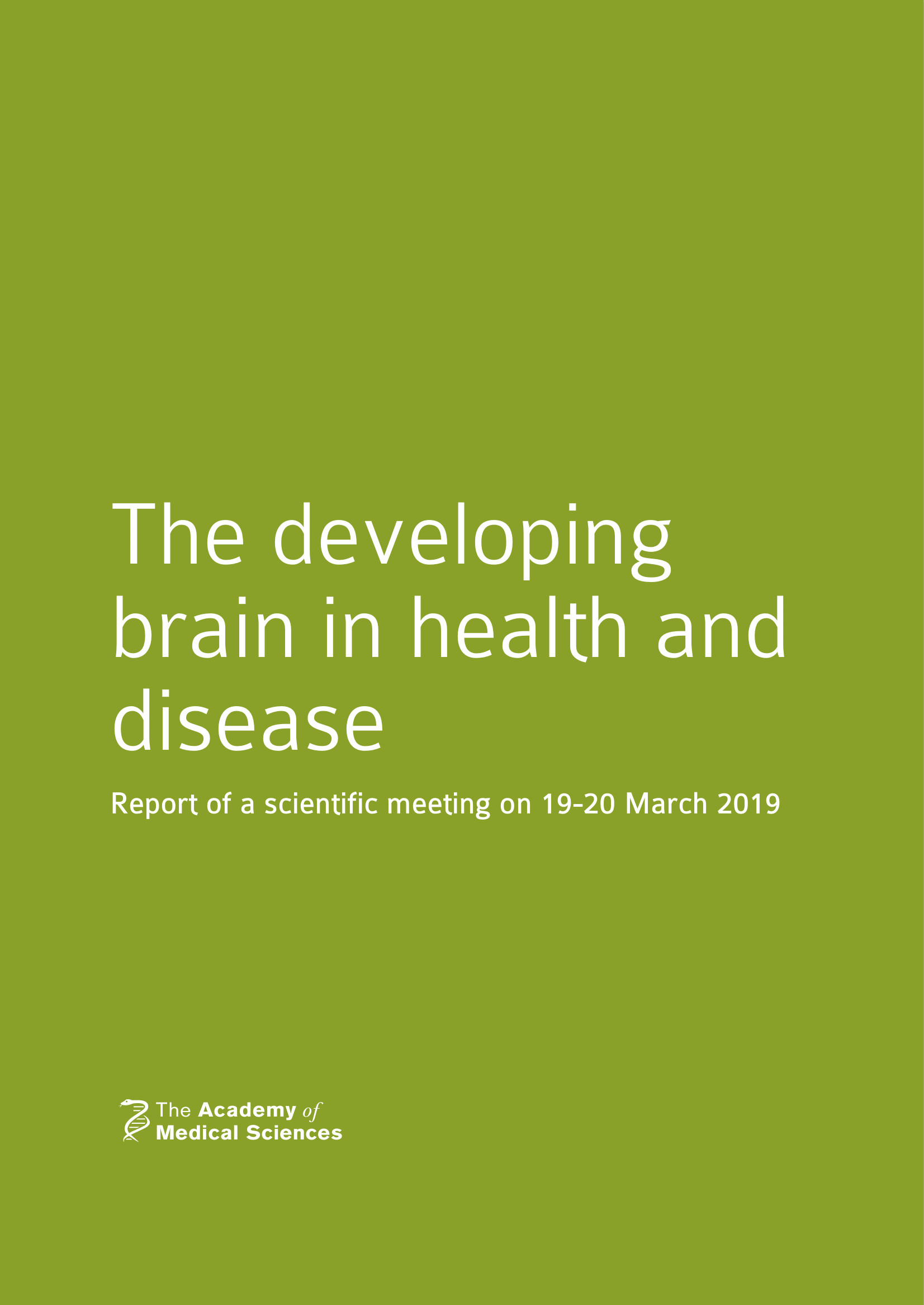9.00, Tuesday 19 March - 17.00, Wednesday 20 March 2019
Lady Margaret Hall, University of Oxford, OX2 6QA
Livestream available:
Chairs: Professor Sir Michael Owen FMedSci FLSW and Professor Kate Storey FMedSci FRSE
The Academy of Medical Sciences is convening a two-day scientific meeting to explore key areas of neurodevelopmental research in a unique forum that promotes discussion and collaboration between disciplines, career stages and sectors.
The neurodevelopmental causes of diseases such as autism, schizophrenia and bipolar disorders are increasingly recognised. These diseases have significant impacts on patient lives, and treatments (where they exist) are life-long. Understanding brain development and the factors that can influence and impair it is a rapidly expanding field of research.
The meeting will bring together an interdisciplinary mix of researchers, from world leading scientists to early career researchers, as well as other key players in the field, such as funders and industry. One of the key aims will be to highlight the latest advances in neurodevelopmental research and identify key research questions that could bring a real impact to the field. There will be a strong focus on nurturing the next generation of researchers by fostering cross-disciplinary collaborations and engagement with more established researchers.
We encourage early career researchers from all backgrounds interested in interdisciplinary research in the neurodevelopmental field to attend this meeting.
Our keynote speakers are:
- Professor Arnold Kriegstein, Director of the Developmental and Stem Cell Biology Program at UCSF
Talk: 'The evolution of brain development – mechanisms underlying the human-specific increase in brain size and complexity'
- Dr. Susan Weiss, Director of the Division of Extramural Research at the National Institute on Drug Abuse (NIDA)
Talk: 'Big science approaches to the study of developing brain – how to best harness existing opportunities?'
- Professor Peter Jones FMedSci, Deputy Head, School of Clinical Medicine, University of Cambridge
Talk: ‘Influence of the environment in the developing brain: Implications for mental health’
- Professor Daniel Geschwind, Director of the Centre for Autism Research and Treatment at UCLA
Talk: ‘Neurodevelopmental disorders: Integrative omics approaches and beyond’
A full agenda is available to download on the right hand side of this page.
Financial contributions towards the project
Alzheimer's Research UK, the Company of Biologists, F1000 Research, the Guarantors of Brain, the International Brain Research Organization (IBRO), the International Society for Developmental Neuroscience, the Loulou Foundation, Peak Labs and the Wellcome Trust have kindly provided financial contributions towards this meeting. The remaining costs were funded from the Academy of Medical Sciences’ Development Fund.
The Development Fund is supported by the Academy’s Helix Group of individual donors who contribute £250 a year or more to support our important work. To learn more about the Helix Group or other ways to support the Academy, including leaving a gift in your Will, please contact Lauren at [email protected].
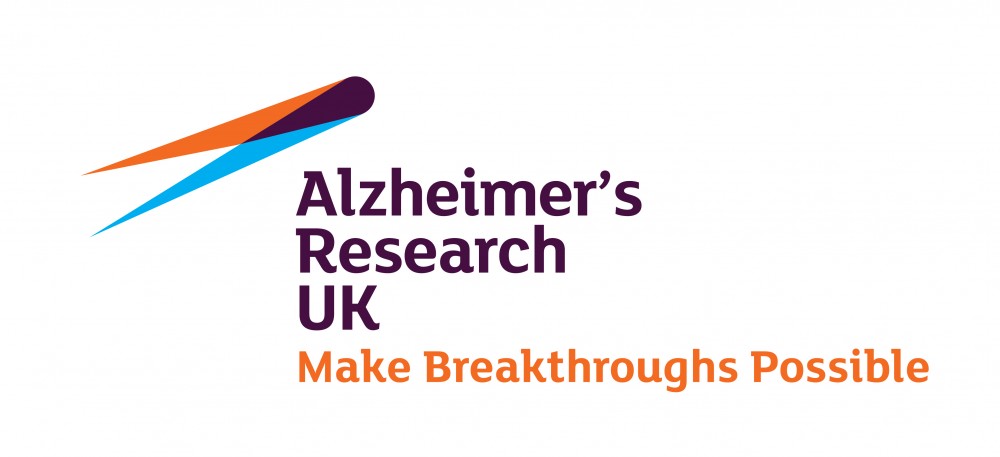
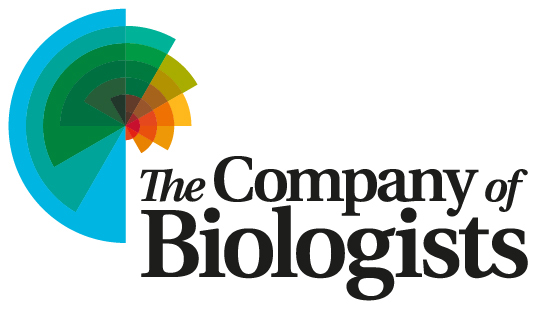

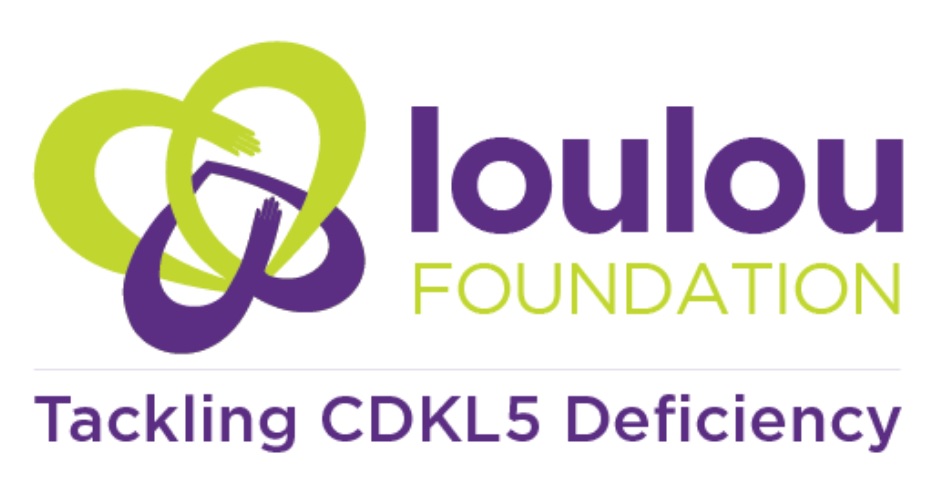
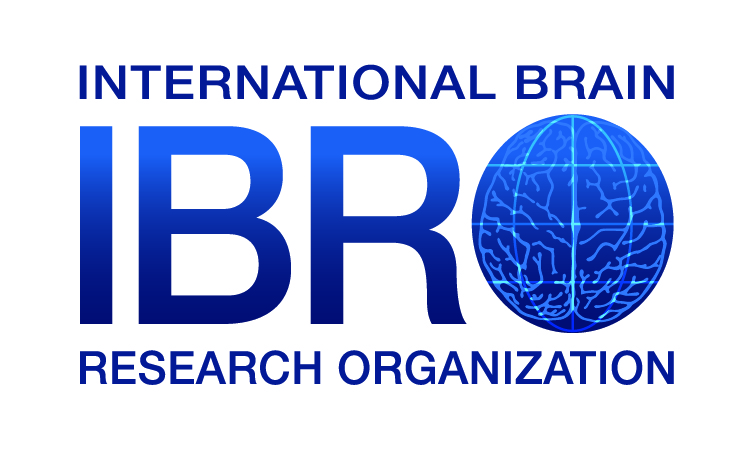
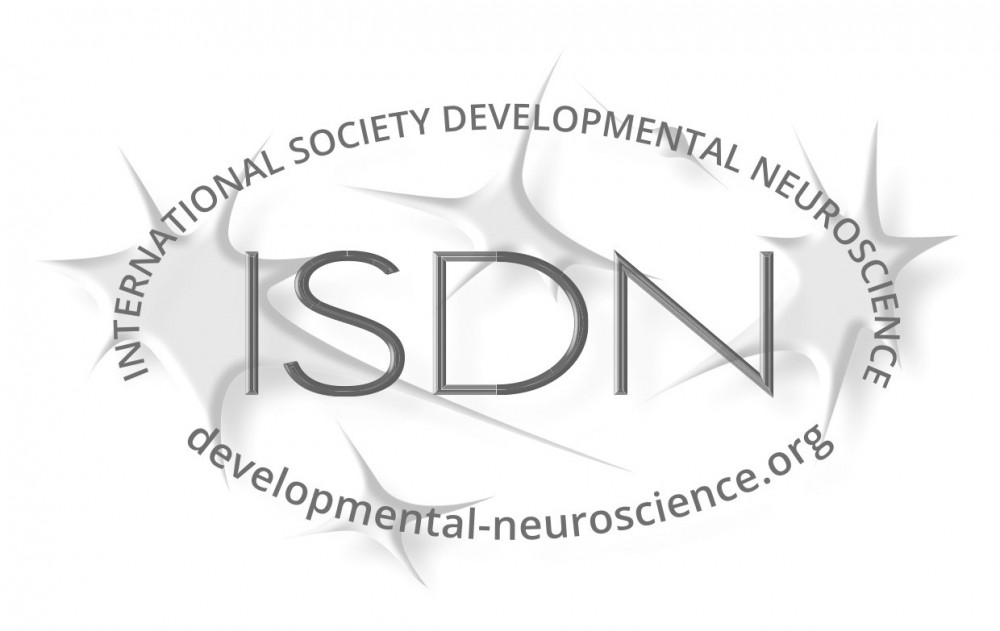



The meeting will be taking place from 9.00 on Tuesday 19 March to 17.00 on Wednesday 20 March 2019. A full programme is available to download on the right hand side of this page.
Livestream available:
A key aim of this meeting will be interdisciplinary networking. During the morning, a series of thematic talks will give a high level overview of different topics that will be further discussed in the breakout sessions in the afternoon. A poster session will allow researchers to showcase their work and receive feedback. The atmosphere of the meeting will be relaxed, stimulating and informative, with plenty of opportunities for discussion, during the plenary sessions, breakout sessions and social events.
List of topics and confirmed speakers:
The evolution of brain development – mechanisms underlying the human-specific increase in brain size and complexity (keynote)
Professor Arnold Kriegstein, Director of the Developmental and Stem Cell Biology Program, University of California, San Francisco
Big science approaches to the study of developing brain – how to best harness existing opportunities? (keynote)
Dr Susan Weiss, Director of the Division of Extramural Research at the National Institute on Drug Abuse, National Institutes of Health
Influence of the environment in the developing brain: Implications for mental health (keynote)
Professor Peter Jones FMedSci, Deputy Head of the School of Clinical Medicine, University of Cambridge and Director, NIHR Collaboration for Leadership in Applied Health Research & Care East of England
Neurodevelopmental disorders: Integrative omics approaches and beyond (keynote)
Professor Daniel Geschwind, Director of the Center for Autism Research and Treatment, University of California, Los Angeles
Experimental models to study brain development: pros and cons of in vivo animal models and in vitro human models
Professor Corinne Houart, Deputy Director of the Centre for Developmental Neurobiology, King’s College London
Cellular and synaptic plasticity in the development of the cerebral cortex
Professor Oscar Marin, Director, MRC Centre for Neurodevelopmental Disorders and Centre for Developmental Neurobiology, King’s College London
Closing the gap between genes, brain, cognition and behaviour
Professor Seth Grant FMedSci FRSE, Professor of Molecular Neuroscience, University of Edinburgh
Brain plasticity and cognition
Professor Zoe Kourtzi, Professor of Experimental Psychology and Deputy Head (Research) of the Department of Psychology, University of Cambridge
Deciphering the aetiology of early development disorders
Professor Matthew State, Chair of the Department of Psychiatry and Director, Langley Porter Psychiatric Institute and Hospital, University of California, San Francisco
Modelling neurodevelopmental disorders to study pathologic brain development
Professor Rick Livesey, Wellcome Trust Senior Investigator, University of Cambridge
Periods of increased sensitivity and vulnerability in brain development
Professor Nicola Allen, Hearst Foundation Development Chair, Salk Institute
The value of cohort and population studies in neurodevelopmental research
Professor Anita Thapar CBE FMedSci, Professor of Experimental Psychology and Deputy Head (Research) of the Department of Psychology, Cardiff University
The meeting will be held at Lady Margaret Hall, University of Oxford,OX2 6QA.
Accommodation is available onsite and we strongly encourage delegates to stay at at Lady Margaret Hall to take full advantage of the opportunities to network with other delegates throughout the meeting.
Please follow the link to book accommodation at Lady Margaret Hall:
Accommodation | LMH
(Please do not book accommodation until you have received confirmation of your attendance at the meeting. There is sufficient capacity at the venue to accommodate all participants, so this will not affect your ability to stay onsite).
Guests will need to enter the code AMSC2019 when booking via the Lady Margaret Hall website (the code must be entered first for the availability to show). The cost is £78.00 per night (including VAT) for a single room with ensuite facilities and breakfast.
If you have any queries or have any issues when making your booking, please telephone +44 (0)1865 274320.
Disclaimer: The Academy of Medical Sciences is an organisation which contracts with Lady Margaret Hall Hospitality Services Ltd for the use of facilities, but which has no formal connection with The University of Oxford.
Brain development is a complex and dynamic process that starts in the embryo and extends through late adolescence, arguably throughout the lifespan. Being shaped by the continuous interaction between genes and environment, the understanding of brain development will shed light, not only on the processes underlying cognition and behaviour, but also on the underlying causes of many mental disorders with neurodevelopmental origin, such as autism and schizophrenia.
In recent years there has been significant progress within many areas of neurodevelopmental research. However research in the field is often undertaken in siloes such as neuroimaging, computational neuroscience, in vitro cell studies or the use of experimental animal models, and within a wide range of disciplines, including psychology, psychiatry, education or neuroscience. A result of this segregated approach is that areas of progress in neurodevelopmental research are not always translated across the breadth of the field to accelerate understanding and clinical benefit. Whilst this problem is not unique to neuroscience, it is especially relevant in this field given its high level of complexity and novelty.
This meeting aims to provide the grounds for further mutual understanding among researches of different backgrounds, ranging from the life and exact sciences to the social sciences, to develop a common language that can foster new insights and collaborations in the field.
Steering Committee
- Professor Sir Michael Owen FMedSci FSLW [co-Chair]
Director of MRC Centre for Neuropsychiatric Genetics and Genomics; Director/Clinical Professor, Division of Psychological Medicine and Clinical Neuroscience; and Emeritus Director of the Neuroscience and Mental Health Research Institute, Cardiff University
- Professor Kate Storey FMedSci FRSE [co-Chair]
Head, Division of Cell and Developmental Biology, and Chair of Neural Development, University of Dundee
- Professor Sarah-Jayne Blakemore FBA
Deputy Director, UCL Institute of Cognitive Neuroscience, Professor of Cognitive Neuroscience at the Institute of Cognitive Neuroscience, and co-Director of the Wellcome Trust PhD Programme in Neuroscience, University College London
- Dr Francois Guillemot FMedSci
Head of Division of Molecular Neurobiology, The Francis Crick Institute, and President of the International Society for Developmental Neuroscience
- Professor David Rowitch FMedSci
Joint appointment as Professor and Head of Paediatrics, University of Cambridge, and Professor of Pediatrics and Neurological Surgery, UC San Francisco
- Professor Barbara Sahakian FBA FMedSci
Professor of Clinical Neuropsychology, University of Cambridge; President of the International Neuroethics Society; and Honorary Clinical Psychologist, Addenbrooke’s Hospital, Cambridge.
The Academy of Medical Sciences – International Brain Research Organization
Travel Grants for Early Career Researchers
The Academy of Medical Sciences is delighted to be able to provide outstanding Early Career Researchers (ECRs) with a travel grant, kindly supported by the International Brain Research Organization (IBRO), to attend our ‘Developing Brain in Health and Disease’ scientific meeting on 19 and 20 March 2019.
What are we offering?
- We can provide funding of up to 400 EUR for 10 outstanding Early Career Researchers who wish to attend the meeting.
- The funds can be used to pay for travel (economy class flight, train tickets, or other transportation) and accommodation costs at Lady Margaret Hall, University of Oxford, where the meeting will take place. Registration for the meeting is free and includes lunch on both days, as well as dinner on 19 March.
- Funds will be reimbursed after receiving a completed expenses claims form and the receipts for all the expenses. We will not be able to provide you with the funds prior to the meeting.
- The expenses claims form will be sent to successful applicants when they receive confirmation of funding. Please refer to the information provided within the ‘Further information about reimbursement of expenses for IBRO travel grants’ document (available to download on the right hand side of this page) for further details of what is covered by the travel grant.
Who is eligible?
- ECRs that have been selected to attend the meeting (see below) from any nationality at PhD and Post-doctoral level who are not independent researchers and have not yet established their own research group, are eligible for this grant.
What are the criteria?
- Applicants will be selected by the meeting’s Steering Committee, based on the quality of their abstract, their research interests and their motivation. Career stage, nationality and gender will also be considered during the selection process to ensure an appropriate balance.
- In case of equal quality, the Steering Committee will give priority to outstanding ECRs from countries with fewer resources for research (including European countries).
When will I know if the travel grant is offered to me?
- We will notify you after the closing date for abstract submission, in the confirmation e-mail informing you that you were selected to attend this meeting.
What other options do I have to fund costs associated with travel and accommodation?









